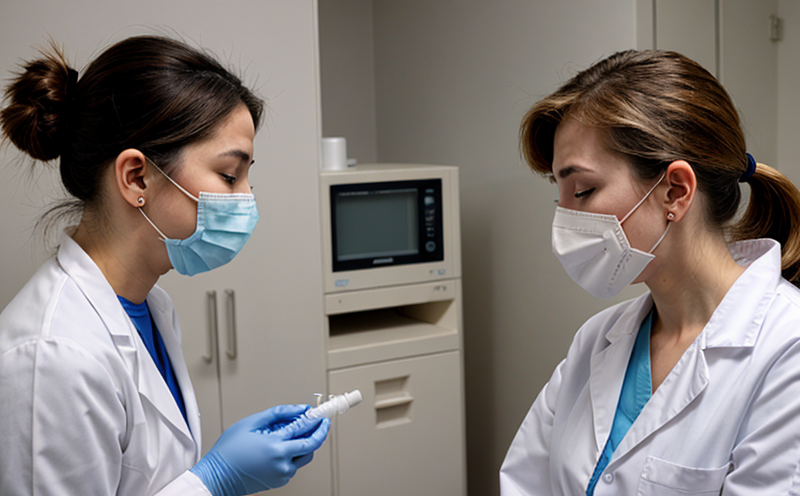ELISA Testing for Fish and Shellfish Allergens
ELISA (Enzyme-Linked Immunosorbent Assay) testing is a widely used diagnostic tool in the field of allergy & immunology. This method allows for the precise quantification of allergen-specific antibodies or small amounts of allergens, making it particularly valuable for identifying and monitoring fish and shellfish allergies.
In clinical practice, ELISA tests are essential for diagnosing allergic reactions to common seafood species such as shrimp, crab, lobster, tuna, salmon, and mackerel. These tests help healthcare professionals understand the extent of an individual's sensitivity to specific allergens by measuring IgE antibodies or detecting trace amounts of proteins present in biological samples like serum.
The importance of accurate ELISA testing cannot be overstated, especially when dealing with severe allergic reactions that can lead to life-threatening conditions. By providing reliable data on allergen concentrations and antibody levels, laboratories equipped with this technology play a crucial role in patient care.
Our laboratory follows strict protocols to ensure the accuracy and reliability of our ELISA tests. We use high-quality reagents certified by reputable manufacturers and employ experienced technicians trained specifically for allergy testing. Our state-of-the-art equipment allows us to perform these analyses quickly yet precisely, delivering results within 24 hours from sample receipt.
| Standard Number | Title of Standard |
|---|---|
| ISO 15195-3:2008 | Immunochemistry—Enzyme immunoassays (EIA)—Part 3: General requirements and performance criteria for enzyme-linked immunosorbent assays (ELISA) |
| CEN/TS 16294 | Food allergies—Guidelines for the detection of allergens in foodstuffs by immunochemical methods, including ELISA and lateral flow devices |
Why It Matters
The identification of fish and shellfish allergies is critical for both patient safety and regulatory compliance. For individuals with known sensitivities, knowing the exact level of allergen exposure can help manage symptoms more effectively through dietary modifications or medication adjustments.
In addition to individual health benefits, accurate allergy testing supports broader food industry standards aimed at minimizing cross-contamination risks during processing. Regulatory bodies like the FDA and EU require manufacturers to label products containing significant levels of known allergens clearly. Thus, reliable ELISA tests are indispensable tools for ensuring compliance with these regulations.
- ELISA methods have been internationally recognized by organizations such as the Codex Alimentarius Commission and World Health Organization (WHO).
- The European Committee for Standardization (CEN) has issued technical specifications endorsing ELISA techniques.
Applied Standards
Our laboratory adheres to stringent standards set forth by international bodies to ensure the highest level of accuracy and reliability in our ELISA tests. Below are some key standards we follow:
| Standard Number | Title of Standard |
|---|---|
| ASTM E2561-14 | Standard Practice for Food Allergen Testing and Verification in Manufacturing Processes |
| EN ISO 15195-3:2008 | Immunochemistry—Enzyme immunoassays (EIA)—Part 3: General requirements and performance criteria for enzyme-linked immunosorbent assays (ELISA) |
International Acceptance and Recognition
ELISA testing for fish and shellfish allergens enjoys widespread international acceptance across various sectors, including food manufacturing, healthcare, and public health agencies. Here are some key points highlighting its global recognition:
- The Codex Alimentarius Commission recommends ELISA as a primary method for detecting allergens.
- World Health Organization (WHO) guidelines endorse the use of ELISA in diagnostic laboratories worldwide.
- European Committee for Standardization (CEN) has published technical specifications endorsing ELISA techniques for food safety applications.





